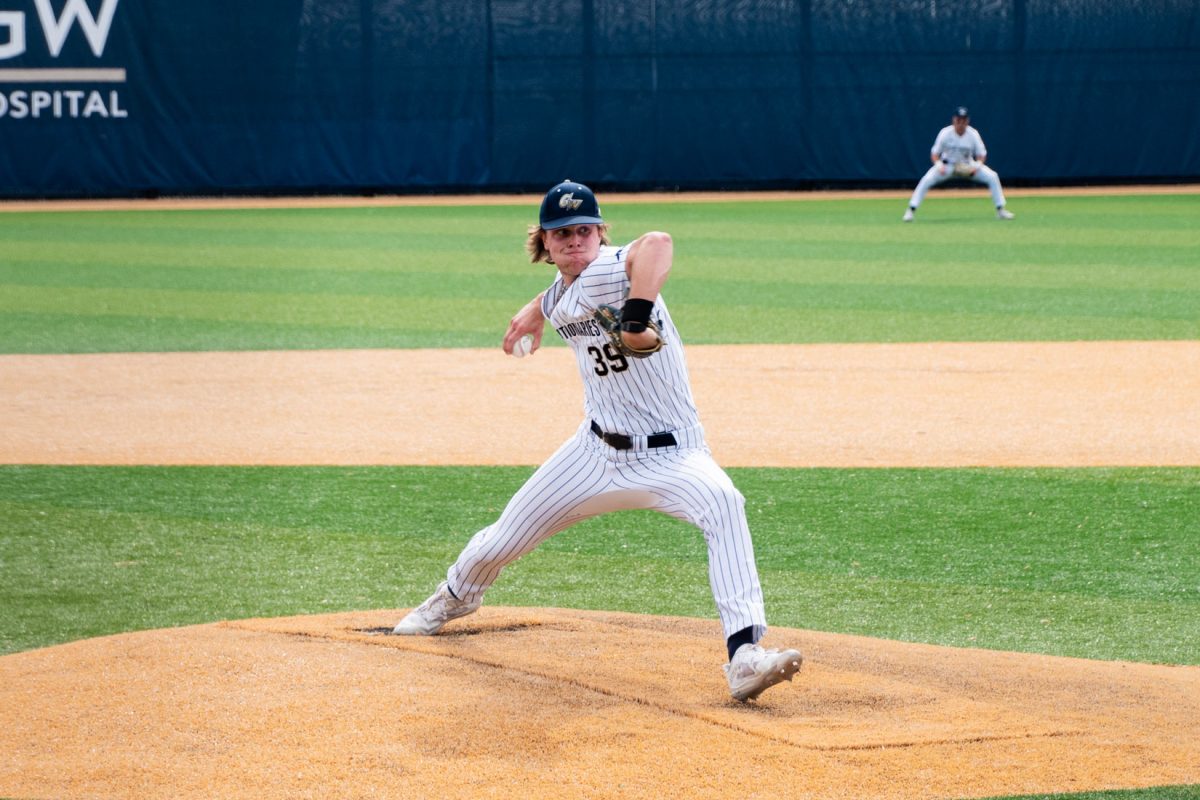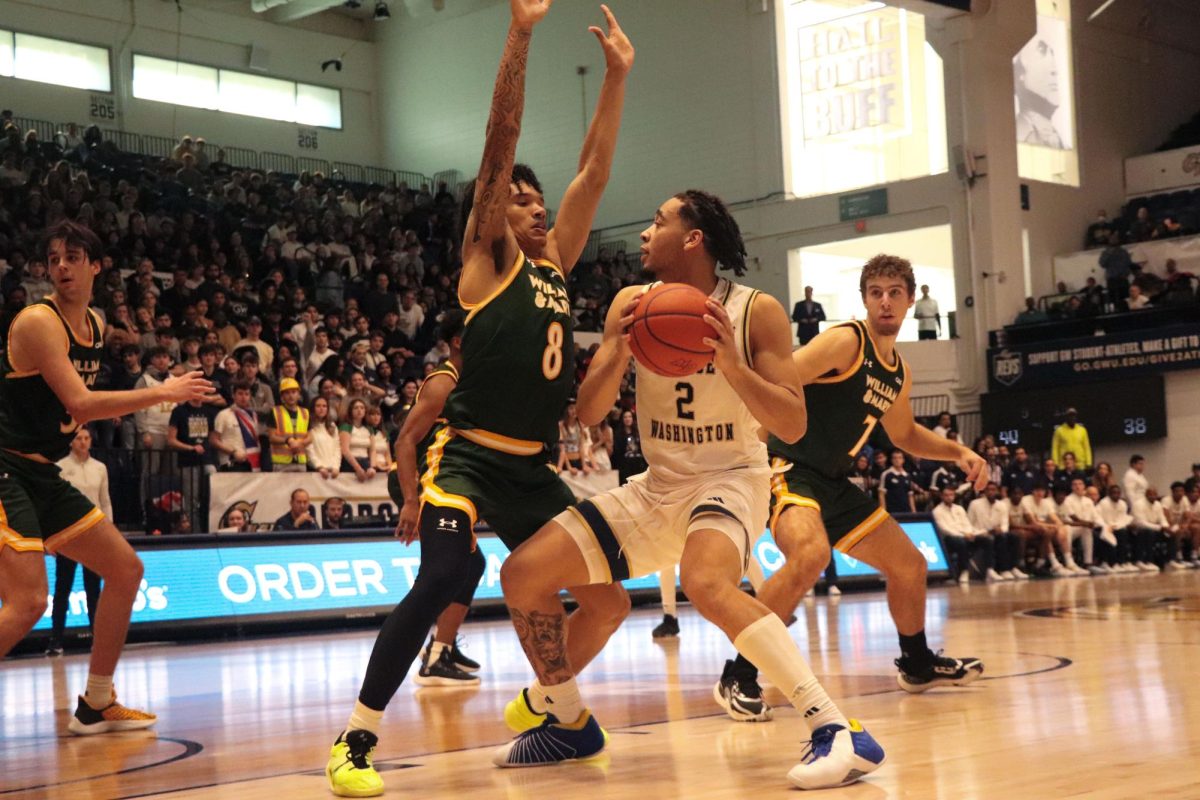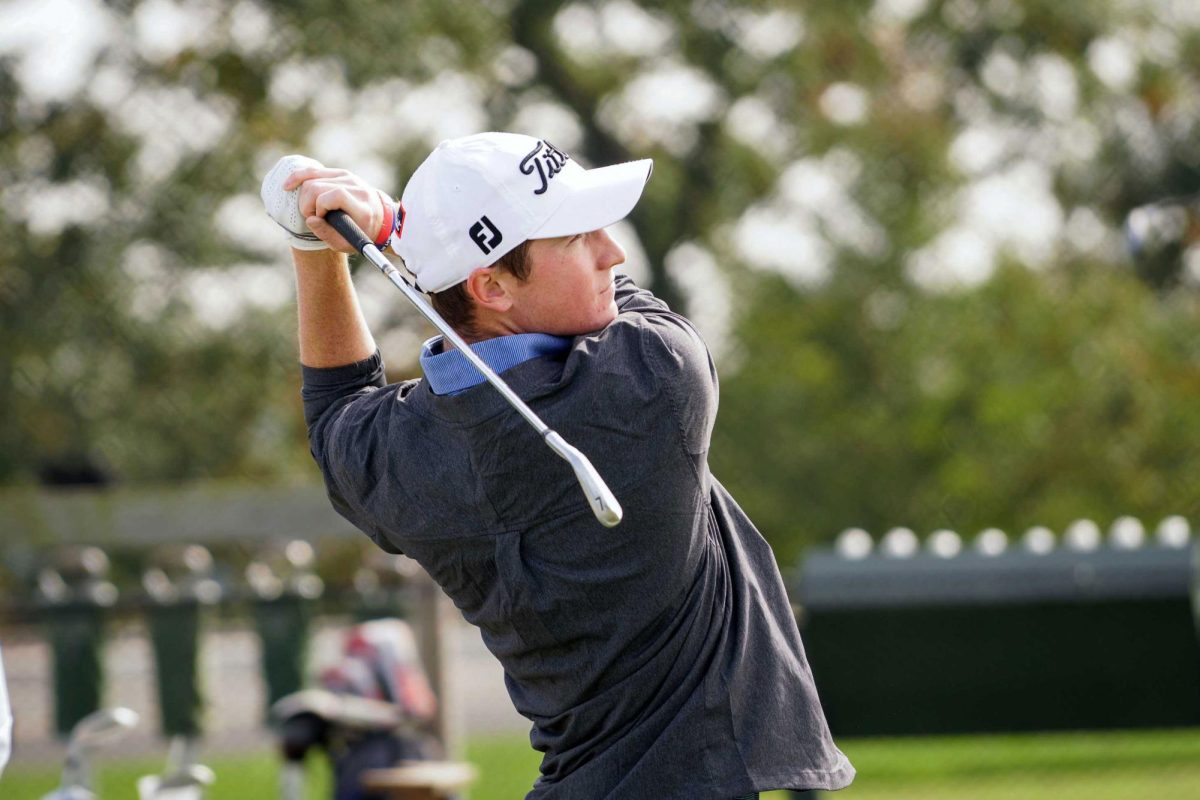The success of a doubles pairing depends on the connection between partners. A mistake by one player affects the other, and if the two are not in sync, they won’t form a successful tandem.
Ironically, the Colonials’ most successful doubles duo also possesses the easiest age discrepancy to spot. The pair consists of senior Ugur Atalay of Istanbul, Turkey and freshman Francisco Dias of Lisbon, Portugal. They have known each other for less than a year but the two quickly bonded over soccer, European current events and the sport they both dominate.
Head coach Greg Munoz decided early in the season that Atalay and Dias would play together. While their age difference was concerning at first, he realized that they complemented one another.
Atalay and Dias are 8-2 on the season. They’re in the unique position of playing their first and only season together as a doubles tandem – not an ideal pairing, but one that motivates the two to achieve significant success.
“Every year you lose players, and doubles partners are separated, so it’s ideal for partners to stick together for a while,” Munoz said. “But bringing Francisco in with his talent would complement Ugur’s play. They definitely have had their ups and downs but they’ve learned from their mistakes and are playing well for us.”
Dias, who ranked No. 80 in the most recent Intercollegiate Tennis Association poll, and Atalay, who earned his second-straight Atlantic 10 Men’s Tennis Performer of the Week award Monday, currently sit at No. 1 and No. 2 on the team’s singles ladder, respectively. Together, they form the Colonials’ top doubles team – a formidable pairing that draws its strength from the players’ strong connection off the court.
“We really hang out a lot. We get along. That’s what forms a really good doubles team,” Atalay said. “Off the court, he comes to my room. We talk about tennis, we talk about different stuff. It helps on the court as well.”
Atalay and Dias said they easily established a strong camaraderie, affording the two a strong rapport. It’s a bond that translates into each having deep respect for the other. Atalay, the more experienced competitor, is able to provide advice and insight to his freshman teammate. In turn, Atalay added, he learns just from watching the highly skilled Dias play.
“I string his rackets. Sometimes I change his grips,” Dias said, with a grin. “I don’t look at him as a senior. I look at him as my teammate, that’s how I like to see it. We are all working towards the same goals.”
The key to achieving their goals, Dias said, circles back to the importance of teamwork. It’s about knowing when to communicate, the freshman added, when to encourage your partner and when to avoid “wasting time talking.”
His doubles partner, thinking in tandem, agreed. Their strong connection and resulting confidence in each other, Atalay said, is the secret to their success.
“It’s totally team play. So his shots become my shots, my shots become his shots. Whatever you do, we win the same point and we lose the same point,” Atalay said. “If one team communicates well there is nothing that can come against them. That forms a really good doubles player, more than doubles skills. ”







